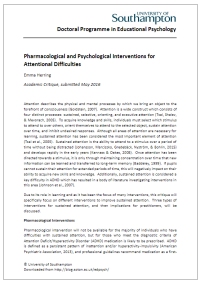Assignment type: Thesis
Author: Patrick Mahon
Submitted: June 2016
Abstract
Managed moves were introduced by the DfE (1999) in an effort to lower the rising number of permanent exclusions in schools. Abdelnoor (2007) described a managed move as a process whereby a student, typically during a school year, moves from one school to another, or to an alternate education provision, to avoid being permanently excluded. This study follows on from a small scale research project by Trainee Educational Psychologists (Mahon, MacKenzie, Delo, & Foy, 2014), which found that self-determination, as defined by Deci and Ryan (1985), played an important role in students’ managed move success. Self-Determination Theory (SDT) identified that when a person’s innate needs of autonomy, competence and relatedness were satisfied they experienced intrinsic motivation, which is conducive to optimal learning in an educational setting (Niemiec & Ryan, 2009). The first chapter of this study begins with a literature review of the benefits of intrinsic/autonomous motivation in the classroom. The review confirmed that when a student’s needs for autonomy, competence and relatedness were satisfied in a classroom setting they experienced intrinsic or autonomous motivation. The four main benefits of student intrinsic/autonomous motivation in the classroom consistently found in the literature were willingness to engage, task persistence, increased student well-being and academic achievement. The review highlighted a lack of research on SDT and student exclusions and/or transition. The search was unable to find any studies on SDT and managed moves.
The second chapter responds to gaps identified by the literature review and used an Interpretative Phenomenological Analysis (IPA) approach to explore the students’ experience of self-determination in their managed move. Findings suggest that when students’ self determination needs are met they are more likely to result in a successful managed move, in terms of their increased engagement, both academically and socially in school, resulting in higher academic achievement, positive wellbeing and future aspirations.
Download thesis (PDF) via ePrints Soton

